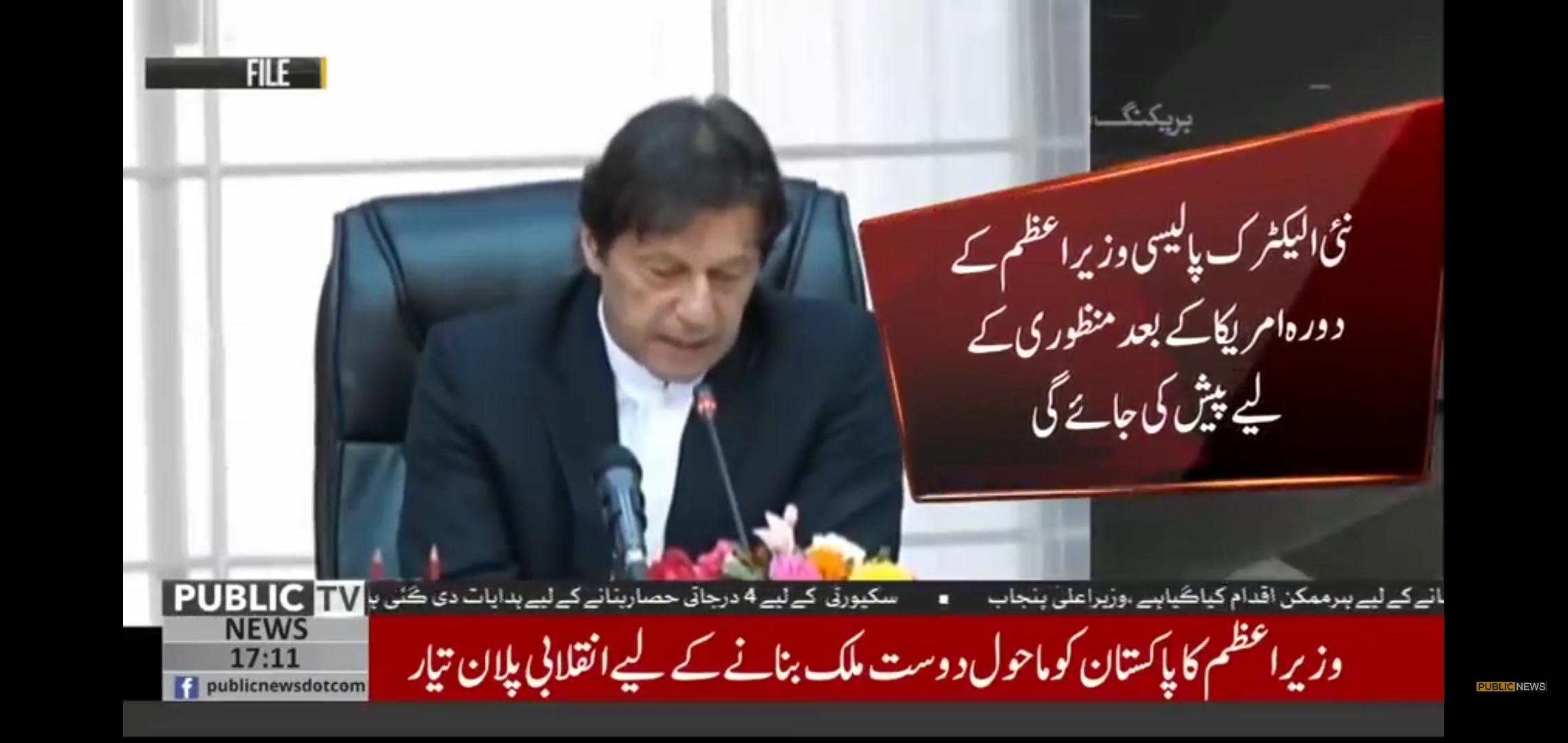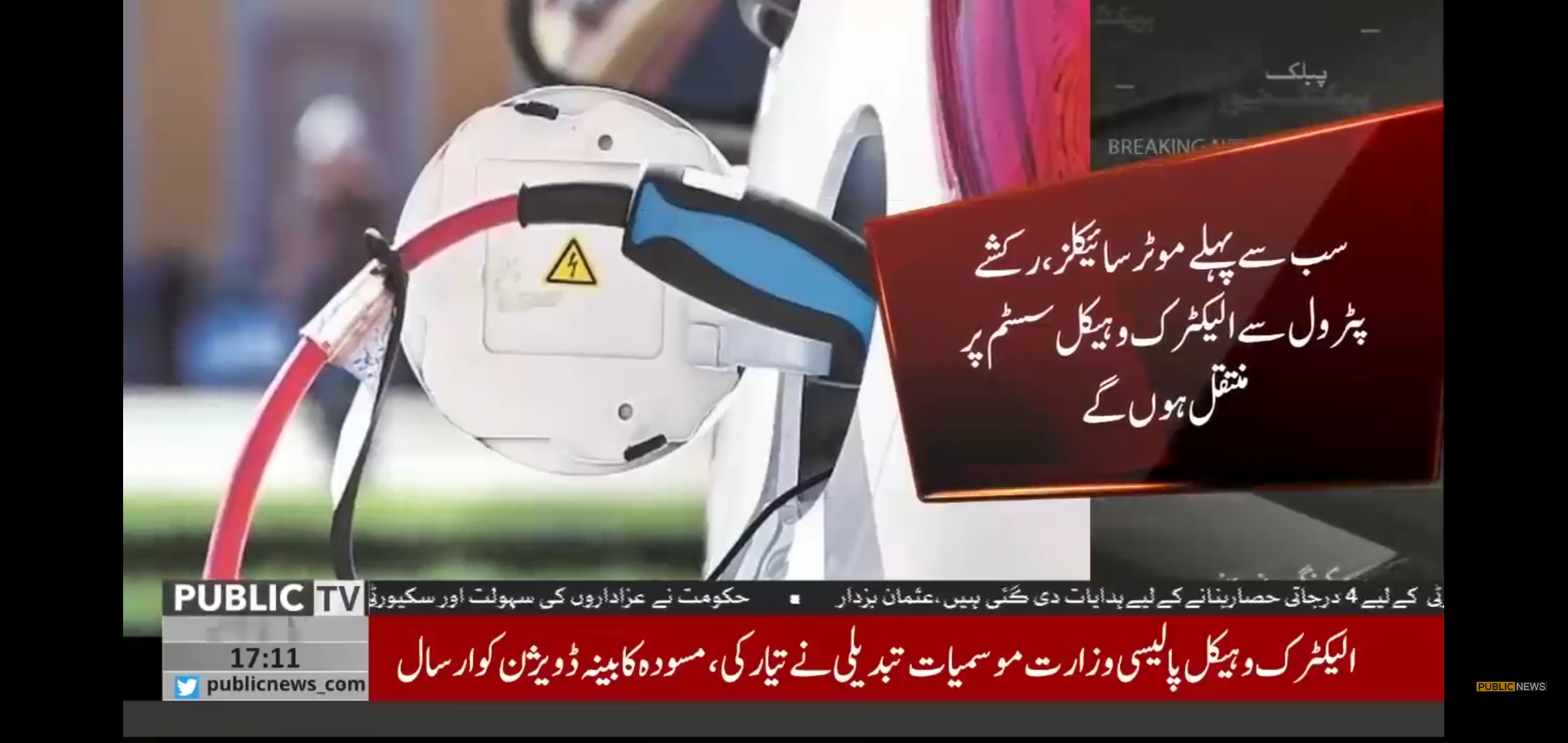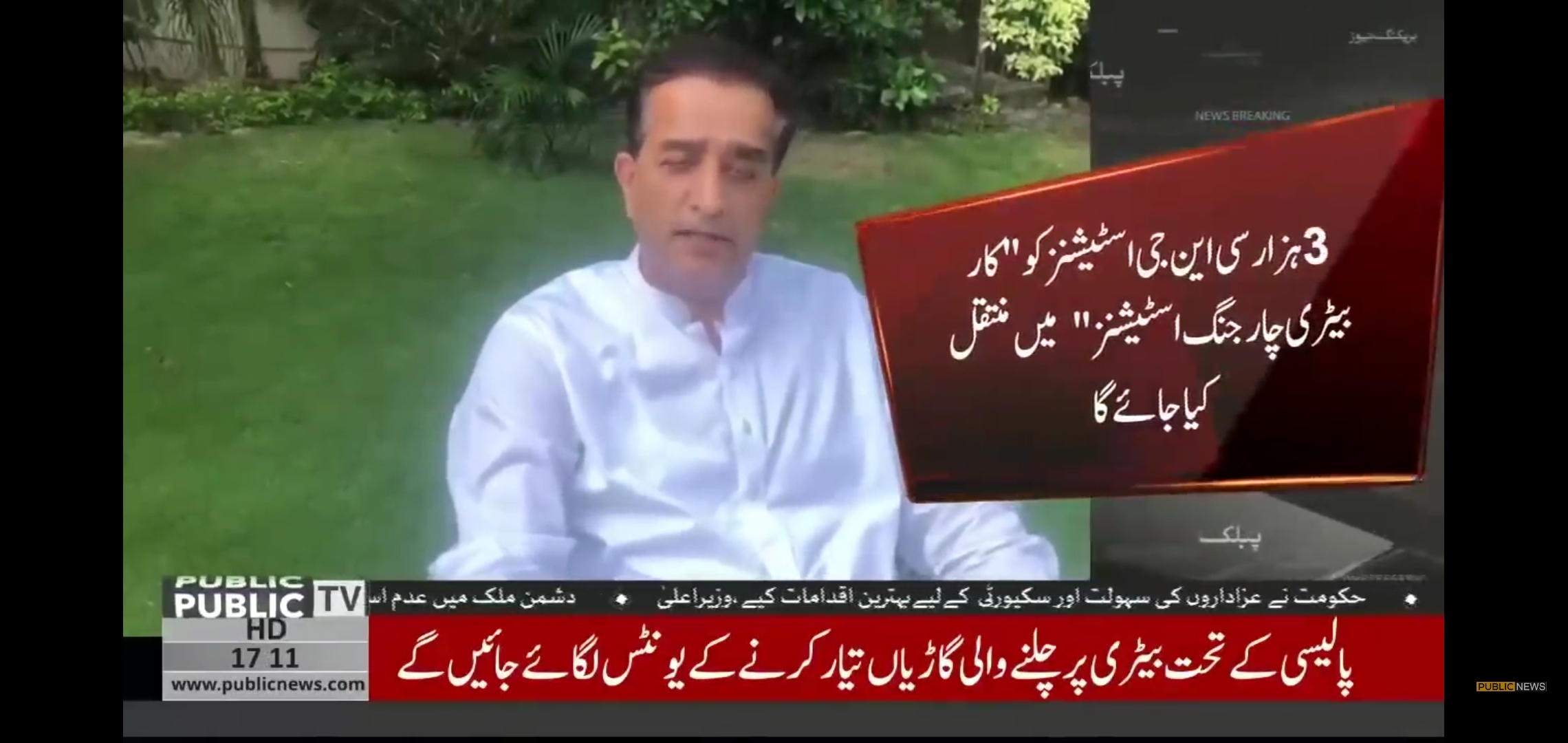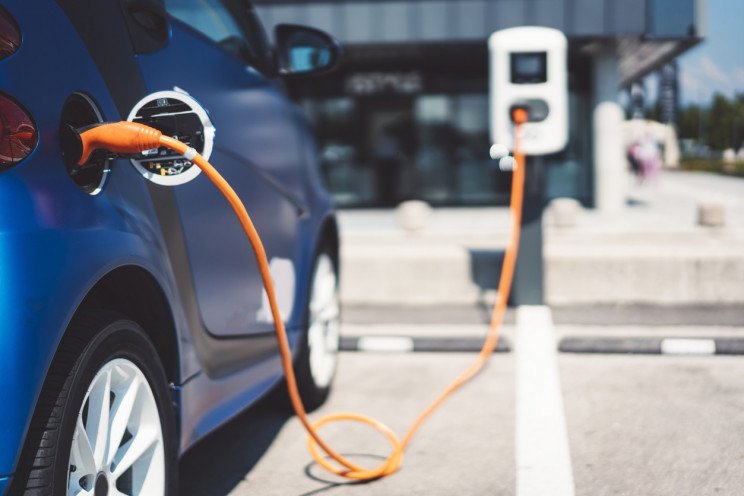Following the orders of PM Imran Khan, the Ministry of Climate Change has completed the first electric vehicle policy and sent it to the Cabinet division for approval.


According to the details, the Prime Minister of Pakistan aims to make the country environmental-friendly, and, hence, ordered the relevant ministry to formulate a revolutionary plan to introduce electric vehicle policy. The finalized policy has been sent to the Cabinet division and will be presented for approval after the PM’s visit to the United States. According to a media report, manufacturing plants will be established all across the country for the production of battery-driven vehicles. In the initial phase, motorbikes and auto rickshaws running on combustion engines will be converted to the electric system. After a successful round of testing on them, cars and commercial vehicles including buses, vans and trucks will also be shifted to the electric vehicle system. As a result, around 70% reduction in emissions is expected to achieve. To establish an infrastructure for electric vehicles, as many as 3000 CNG stations will be converted into battery charging stations for electric vehicles. Furthermore, the motorways and highways network in the country will also have battery charging stations. PM Imran Khan aims to revolutionize the auto industry and meet the international standards of low emissions to make the country environmental-friendly. In the first stage, a special economic zone will be established in Islamabad and Sialkot for the production of electric vehicles in the country. It will also create immense job opportunities in the country.


 The carbon emissions from the combustion engines have poisoned the environment to a great extent. The global automobile sector has already moved towards electric mobility to save the environment. The auto giants around the world are producing electric cars and competing in the global market with whopping sales. It’s for the very first time that an electric vehicle policy is formulated by a government in Pakistan which is a welcoming step indeed.
The carbon emissions from the combustion engines have poisoned the environment to a great extent. The global automobile sector has already moved towards electric mobility to save the environment. The auto giants around the world are producing electric cars and competing in the global market with whopping sales. It’s for the very first time that an electric vehicle policy is formulated by a government in Pakistan which is a welcoming step indeed.
On the other hand, the Ministry of Industries and Production has recently been involved in a row with the Ministry of Climate Change over the preparation of electric vehicle policy. The ministry believes that it should have been prepared under their representatives including those of Ministry of Commerce, science and technology, Federal Board of Revenue, Board of Investment, Engineering Development Board (EDB) and Ministry of Climate Change. There is a need for necessary consultation to ensure that the policy is in line with international environmental standards. The electric vehicle policy shall promote healthy competition in the local auto sector and result in several options for the consumers in each price bracket. The journey towards a clean and green environment shall be implemented after consultation with the stakeholders under the rules of the Auto Development Policy (ADP) 2016-21. The policy shall strengthen the country’s auto sector and at the same time, offer investment protection to the existing local industry. According to Malik Amin Aslam, the adviser to PM on Climate Change, 30% of the vehicles in the country will go electric by 2030. He said that the cost of running a vehicle would reduce in the case of electric cars and new units for the manufacturing of batteries will be established in the country. The import bill for petroleum will also be reduced significantly if the country achieves electric mobility.
The local auto industry, however, has so many concerns over the formulation of electric vehicle policy as it believes that their business will be affected adversely. The car sales are already down significantly due to surging prices owing to the devaluation of Pakistani Rupee against the US dollar and the implementation of Federal Excise Duty (FED) on all cars by the government. Regardless of the declining sales, the idea of moving towards electric vehicles is beneficial for the environment which needs maximum attention at this time. The local auto industry should support the government’s step and look to invest in producing electric vehicles and play their part in saving the environment. The installation of new manufacturing plants will yield thousands of jobs in the country and help the local auto sector to compete in the global market.
Mention your suggestions in the comments section below and stay with PakWheels for more updates on this developing story.



The major problem in all of these pipedreams is lack of domestic finance for investors, and lack of affordable finance for buyers. No money = no progress.
Western countries’ finance system supports investment, whereas our “Muslim” country’s finance system is more predatory and usury based than even Jewish country israel (13.25% interest in Pak vs. 0.25% Israel).
Unless lack of affordable and sustainable financing is resolved, none of the Naya Pakistan projects can be realised on a scale that is needed.
What you don’t realize is the fact that Pakistani Rupee is not pegged to USD and therefore it devalues with time. Israeli shekel and most arab currencies are directly pegged to USD and therefore don’t devalue frequently and as much. The real interest/profit rate in Pakistan is definitely a bit higher but most of 13.25% is actually not interest/profit but rather currency depreciation facilitation.